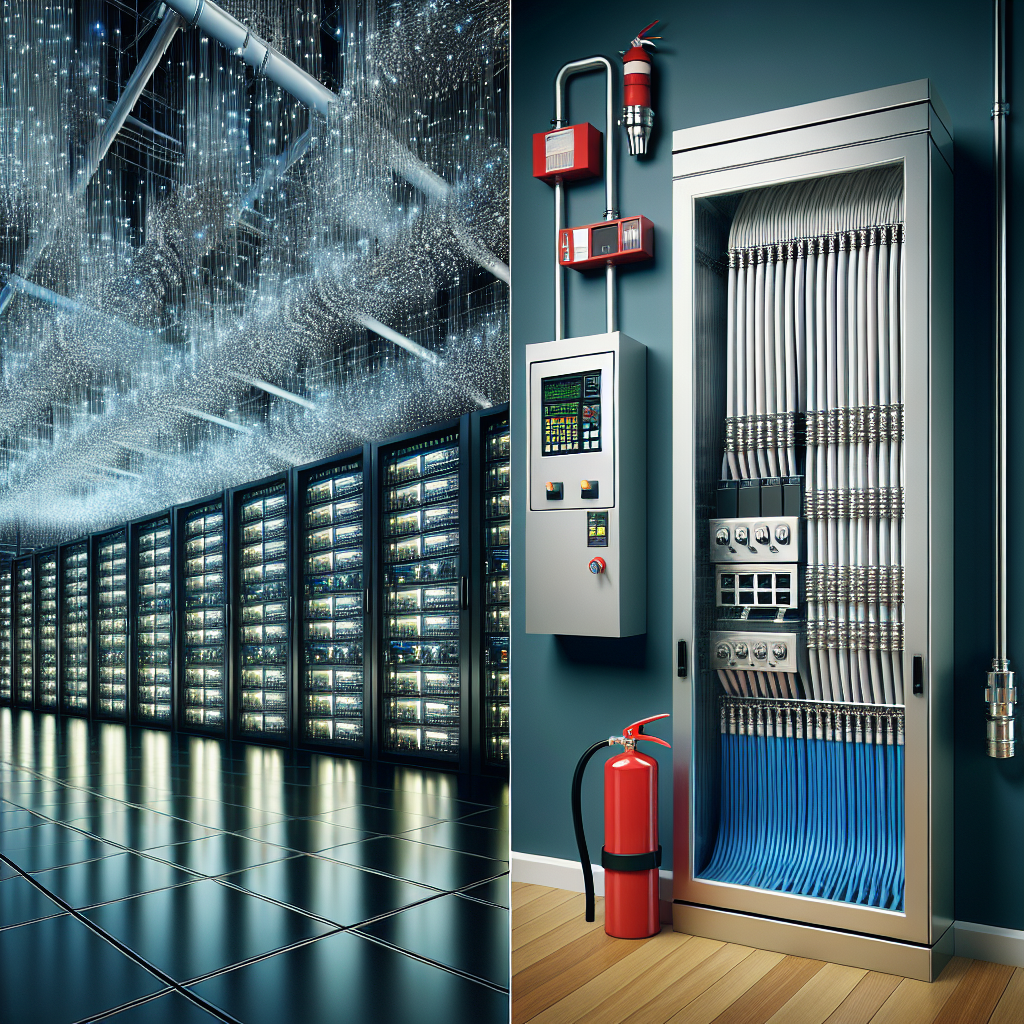Data centers are vital components of modern society, housing the servers and infrastructure that store and process vast amounts of data. With the increasing reliance on digital technologies, the importance of data centers has never been greater. However, along with this reliance comes the increased risk of fires, which can have catastrophic consequences for data centers and the organizations that rely on them.
Fire suppression systems are essential in data centers to protect the valuable equipment and data housed within. These systems are designed to detect and extinguish fires quickly, minimizing damage and downtime. Without proper fire suppression measures in place, a fire in a data center can quickly spiral out of control, leading to data loss, equipment damage, and potentially even the complete destruction of the facility.
There are several types of fire suppression systems commonly used in data centers, including sprinkler systems, clean agent systems, and inert gas systems. Each type of system has its own advantages and disadvantages, and the best choice will depend on factors such as the size and layout of the data center, the type of equipment housed within, and the level of risk tolerance of the organization.
Sprinkler systems are the most common type of fire suppression system used in data centers. These systems consist of a network of pipes filled with water, which are activated by heat and will release water to extinguish the fire. While effective in many situations, sprinkler systems can also cause water damage to equipment and data, leading to costly repairs and downtime.
Clean agent systems use gases or chemicals to extinguish fires without the need for water. These systems are ideal for data centers as they are clean, non-conductive, and safe for use around sensitive equipment. However, clean agent systems can be expensive to install and maintain, and may not be suitable for all types of fires.
Inert gas systems work by displacing oxygen in the air, suffocating the fire. These systems are effective at extinguishing fires quickly without causing damage to equipment or data. However, inert gas systems can be dangerous to humans if not properly monitored, as they can reduce oxygen levels in the room.
Regardless of the type of fire suppression system used, regular maintenance and testing are crucial to ensure that the system will function properly in the event of a fire. Data center operators should work closely with fire protection professionals to develop a comprehensive fire suppression plan that meets the specific needs of their facility.
In conclusion, fire suppression systems are a critical component of data center safety and security. By investing in the right system and regularly maintaining it, data center operators can protect their valuable equipment and data from the devastating effects of fire. Data center operators should never underestimate the importance of fire suppression and should make it a top priority in their overall risk management strategy.


Leave a Reply